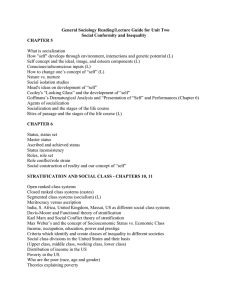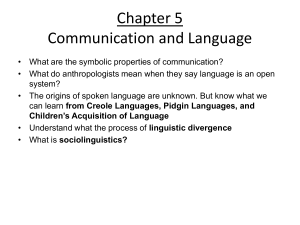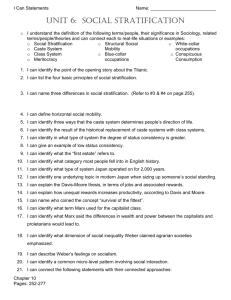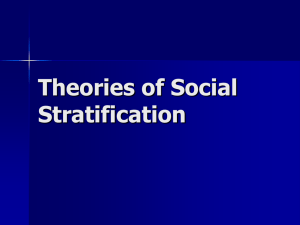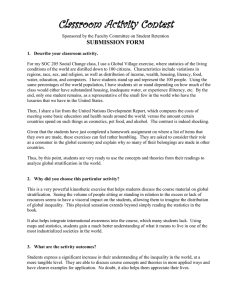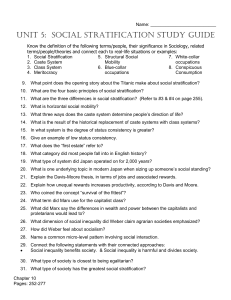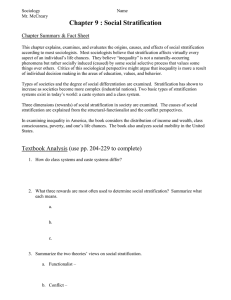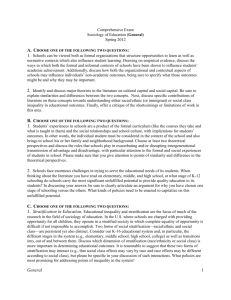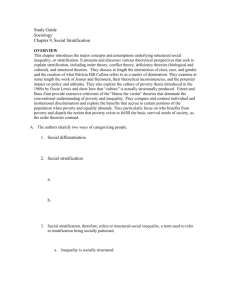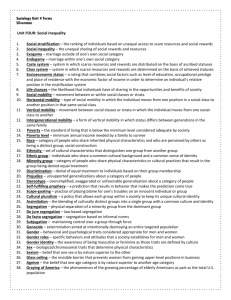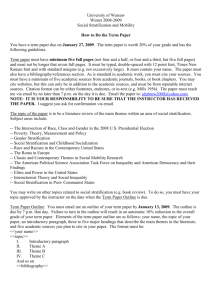Unit 2: Social Inequality Objectives Candidates should be able to
advertisement
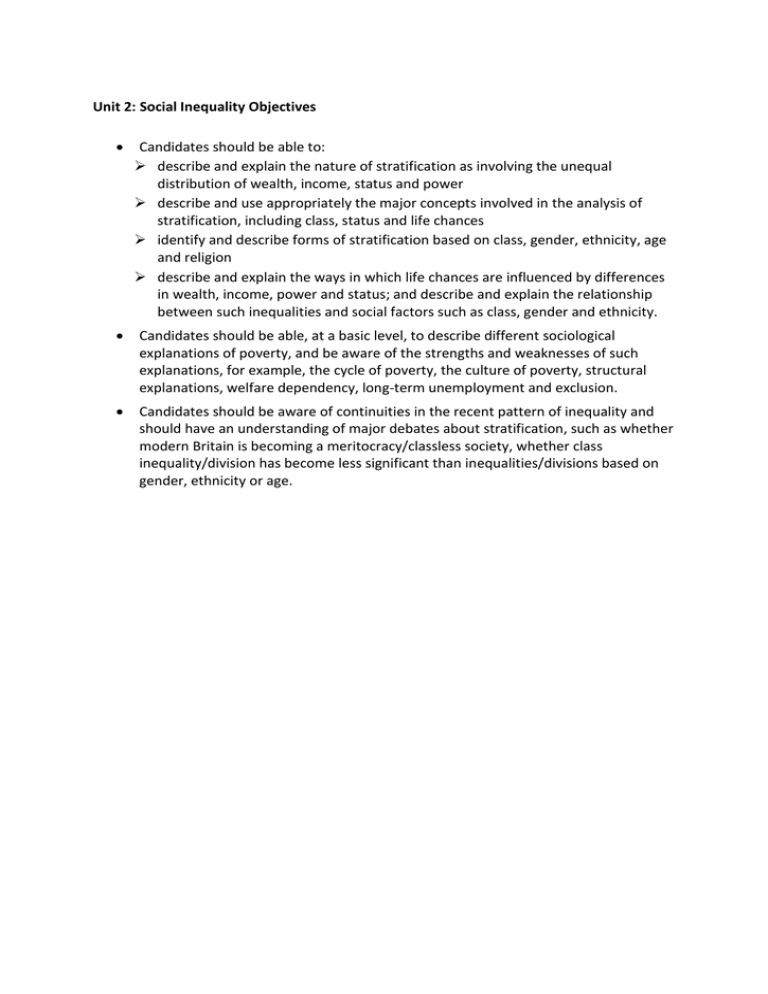
Unit 2: Social Inequality Objectives Candidates should be able to: describe and explain the nature of stratification as involving the unequal distribution of wealth, income, status and power describe and use appropriately the major concepts involved in the analysis of stratification, including class, status and life chances identify and describe forms of stratification based on class, gender, ethnicity, age and religion describe and explain the ways in which life chances are influenced by differences in wealth, income, power and status; and describe and explain the relationship between such inequalities and social factors such as class, gender and ethnicity. Candidates should be able, at a basic level, to describe different sociological explanations of poverty, and be aware of the strengths and weaknesses of such explanations, for example, the cycle of poverty, the culture of poverty, structural explanations, welfare dependency, long-term unemployment and exclusion. Candidates should be aware of continuities in the recent pattern of inequality and should have an understanding of major debates about stratification, such as whether modern Britain is becoming a meritocracy/classless society, whether class inequality/division has become less significant than inequalities/divisions based on gender, ethnicity or age.
